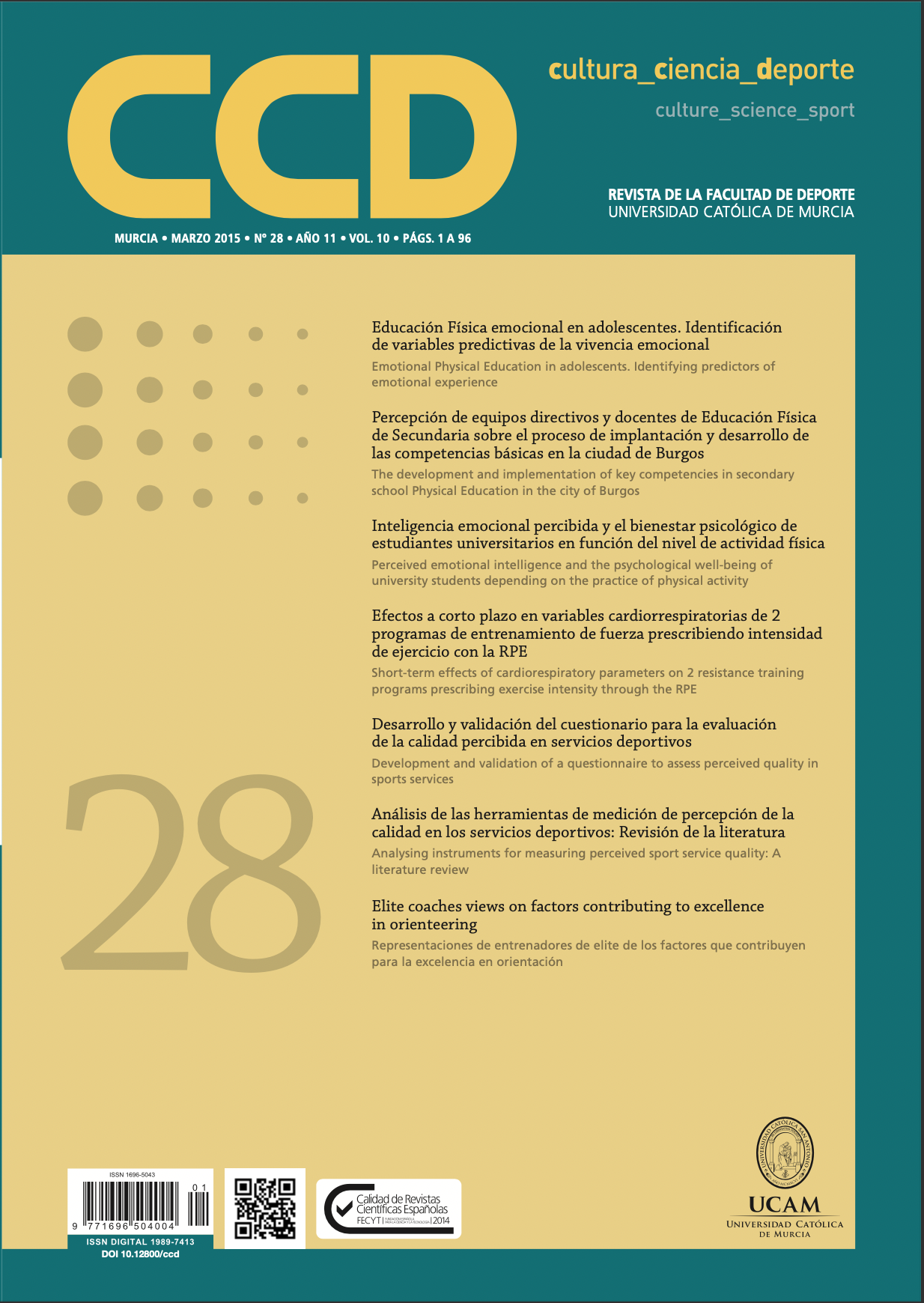Inteligencia emocional percibida y el bienestar psicológico de estudiantes universitarios en función del nivel de actividad física. (Perceived emotional intelligence and the psychological well-being of university students depending on the practice of physical activity).
DOI:
https://doi.org/10.12800/ccd.v10i28.513Abstract
http://dx.doi.org/10.12800/ccd.v10i28.513
El objetivo principal fue analizar la inteligencia emocional percibida y el bienestar psicológico de los estudiantes universitarios en función de la práctica de actividad física. Se utilizó una muestra de 1008 estudiantes de una universidad pública andaluza con edades comprendidas entre los 17 y los 30 años, de los cuales 414 eran físicamente activos y 594 insuficientemente activos. Se emplearon diferentes cuestionarios para evaluar la actividad física habitual, la inteligencia emocional percibida y el bienestar psicológico. El análisis de correlaciones mostró que los constructos de claridad y reparación emocional correlacionaban positiva y significativamente con la autoestima y satisfacción con la vida. Se encontraron diferencias significativas entre los universitarios físicamente activos y los que no en todas las variables, salvo en la atención emocional. Los alumnos físicamente activos mostraron puntuaciones más elevadas en las variables que medían el bienestar (autoestima y satisfacción con la vida), en la claridad y reparación emocional. Los resultados se discuten en relación a la promoción de la actividad física como favorecedora del bienestar y la inteligencia emocional percibida en el alumnado universitario.
Palabras clave: Actividad física habitual, inteligencia emocional, bienestar psicológico, estudiantes universitarios.
===
Abstract
The main objective was to analyse the perceived emotional intelligence and the psychological wellbeing of university students with regard to their physical activity practice. A sample of 1008 students from a public university in Andalusia, Spain, was utilised. The subjects were between 17 and 30 years of age. Four-hundred and fourteen subjects were physically active, and 614 subjects were less active. Various questionnaires were utilised to evaluate the subjects´ normal physical activity, their perceived emotional intelligence, and their psychological wellbeing. The correlational analysis demonstrated that the constructs of emotional clarity and repair were positively and significantly related to self-esteem and life satisfaction. Significant differences were found between the physically active subjects and those that were not active for all variables, except in the emotional attention. The physically active students demonstrated higher scores for the variables that measured wellbeing (self-esteem and life satisfaction), for clarity, and for emotional repair. The results are discussed in relation to the promotion of physical activity, as favouring wellbeing and perceived emotional intelligence for university students.
Key words: customary physical activity, emotional intelligence, psychological wellbeing, university students.
Downloads
How to Cite
Issue
Section
License
The authors who publish in this journal agree with the following terms:
- The authors retain the copyright and guarantee the journal the right to be the first publication of the work as well as licensed under a Creative Commons Attribution License that allows others to share the work with recognition of the authorship of the work and the initial publication in this journal.













